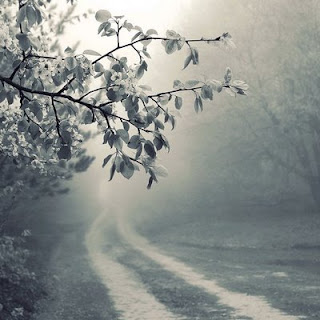He was the sage that gave India and Hindus the four Vedas, the 18 Puranas,
the Mahabharata, and the Srimad Bhagavata. So revered is Sage Vyasa,
often regarded as the Guru amongst Gurus that Guru Purnima is a special
festival celebrated across India to honour him.
Guru Purnima, which falls on 3 rd of July this year is a festival celebrated
not just in India but around the world by disciples to revere and honour
their Gurus (spiritual masters). This day which falls on the full moon day
(purnima) during the month of June/July (Ashadh), is also of great
significance to Buddhists across the world as it is believed to be the day that
Lord Buddha delivered his first sermon at Sarnath, Uttar Pradesh.
Also known as “Vyasa Purnima”, not only do many believe this was the day
the great sage Vyasa was born, but also completed the codification of the
fourVedas as well as writing of the eighteen Puranas on this day.
With the passage of time, Vyaasa Purnima came to be known as Guru Purnima.
A great Guru, Vyasa was often described as an incarnation of Lord Narayana
and hence this is a very significant day for Hindus as Gurus are often regarded
as God. According to the Shvetashvatara Upanishad (6/23): “Yasya deve para
bhaktir yatha deve tatha gurau, Tasyaite kathitaa hi arthaaha prakashante
mahatmanaha” which means Gurus should be worshipped as their
God would be worshipped, in order to attain all there is to be attain.
According to Wikipedia, and an article published by Dr. Mandara Maharishi,
Scientific Astrologer and Vastu Consultant. The Sanskrit root “Gu” means darkness
or ignorance. “Ru” denotes the remover of that darkness; therefore the one who
removes darkness of our ignorance is a Guru. He may give knowledge but never
claim to be God. Thus on this day Gurus all over are visited by devotees with
gifts known as “Gurudakshina’. A Guru is one who exemplifies wisdom, peacefulness,
self-control, austerity, piety, tolerance and strong faith in God.
On Guru Poornima day, devotees worship Vyasa, and disciples perform a ‘puja’ of their
respective spiritual preceptor or ‘Gurudevs’. Cultural programs also form a part of the
celebrations with ashrams and spiritual houses welcoming devotees with bhajans
and divine talks. For farmers too it is an important day as it is the start of the
much awaited rains.
This day is also the start of the period Chaturmas which translates to four months.
This is the period when spiritual guides who used to wander settled down at one
place to study the Brahma Sutras and take part in Vedantic discussions.
For Buddhist monks too this auspicious day is a day of observance and meditation.
As this day is also considered the start of the monsoon season,
Buddhist monks usually do not travel for a period of three months observing
this period as a time of serious meditation. Many lay people also give up
practices such as alcohol, smoking or consumption of non vegetarian
foods in order to revive their spiritual quest.
Even as per Jain customs, it was on this day that Mahavira the 24th Tirthankara
on attaining Kaivalya made Indrabhuti Gautam, who later came to be known as
Gautam Swami his first disciple; thus this day is observed in Jainism
too as Guru Purnima.
The annual Sri Guru Pooja is a time of reflection, for devotees to check how much
progress they have made over the year that has passed. The annual function
of Sri Guru Pooja presents a moment of introspection for us to check up how far
we have progressed along this path over the last one year and take lessons from i
t and resolve to march faster in the current year.
It is not just a day of worship and puja for gurus but also a day when deserving
aspirants are initiated into the Holy Order of Sannyas, as it is a highly
auspicious occasion.
Summing up this auspicious occasion in the words of Swami Sivananda:“Wake up at
Brahmumuhurta (at 4.a.m on this most holy day. After a bath, worship the lotus feet
of your Guru, or his image or picture with flowers, fruits, incense and camphor.
Do vigorous Japa and meditate in the early morning hours. Fast or take only milk
and fruit the whole day.
In the afternoon, sot with other devotees of your Guru and discuss with them
the glories and teachings of your Guru. Mentally pray to him for his grace,
through which alone, you can attain self – realization.”
“Alternatively, you may observe the vow of silence and study the books or writings
of your Guru, or mentally reflect upon his teachings. Take fresh resolves on
this holy day, to tread the spiritual path in accordance with the precepts of your Guru.
At night, assemble again with other devotees, and sing the Names of the Lord and the
glories of your Guru. The best form of worship of the Guru is to follow his teachings,
to shine as the very embodiment of his teachings, and to propagate his
glory and his message.”












